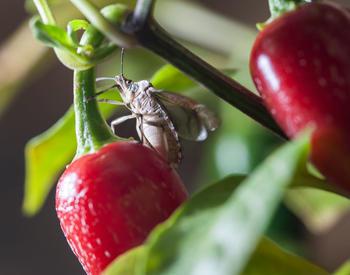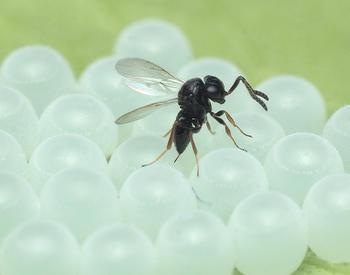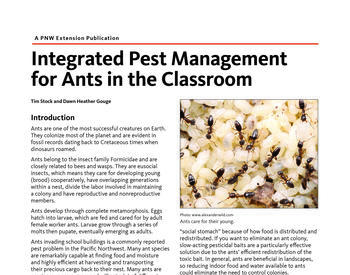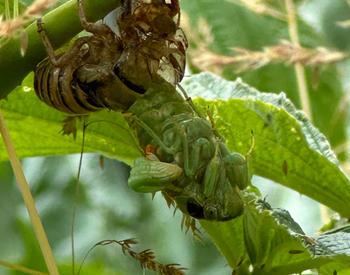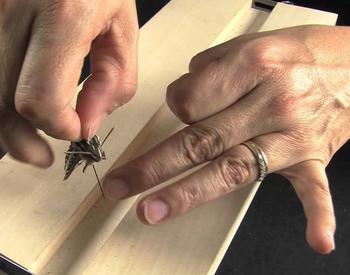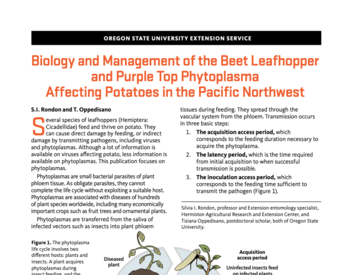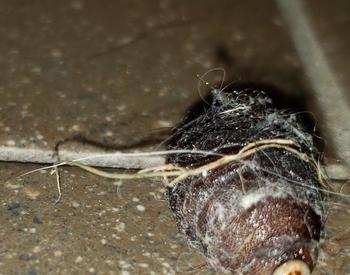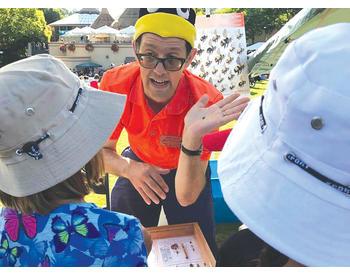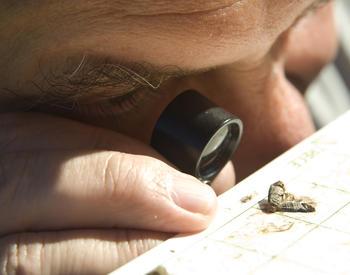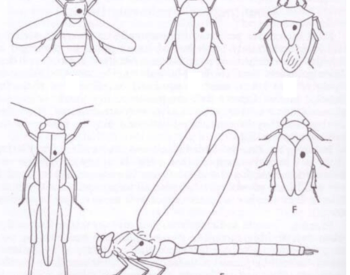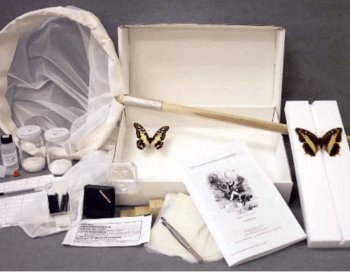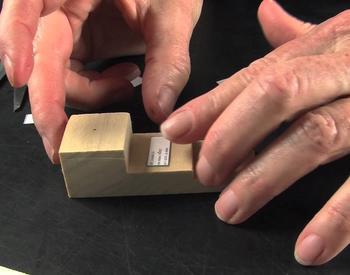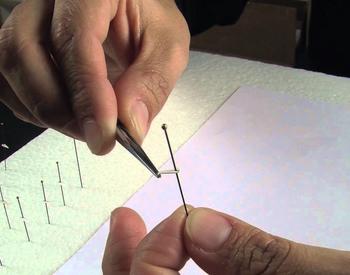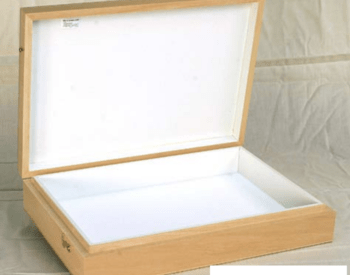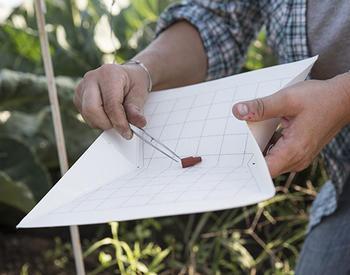CORVALLIS - Now that spring is finally warming up, gardeners need to be on the look out for aphids - tiny, soft bodied, plant-sucking insects. Aphids especially love the tender young plant growth so prevalent this time of year.
Most aphids are "naked," without a hard exoskeleton, but some species have a soft cottony substance over their bodies. They can be just about any color. Some have wings and some do not. About one-tenth of an inch long, aphids have long hypodermic needle-like mouth parts, adapted to pierce and suck out plant juices. Most secrete honeydew, a sweet, sticky substance which is a food source for ants, bees and flies. Some kinds of aphids may spread plant viruses from one host to another. Dripping honeydew also encourages sooty mold growth on many plants.
Gail Gredler, home horticulturist with the Oregon State University Extension Service, offered some strategies to keep aphid damage at a minimum without resorting to toxic chemicals. Because there are so many kinds of aphids with varying life cycles, she recommended the following diverse array of aphid control strategies:
- Use smart landscape design. Do not have aphid-attracting plants where aphids or their honeydew will do harm. For example, birches are notorious aphid-attractors. Don't plant birches near driveways or decks, or your vehicles and deck will be sticky with honeydew.
- Keep plants healthy. Plants with adequate supplies of nutrients, water and light can fend off aphids more easily than sickly or stressed plants. Avoid over-fertilizing. Succulent new growth attracts aphids. The use of slow-release or organic fertilizers helps avoid an overdose of nutrients to the plants.
- Remove aphids physically from the plants they feed on. A periodic strong spray of water with the garden hose can work wonders with aphids on rose shoots and buds, bean plants, young broccoli and cabbage shoots and other tender garden foliage. Prune off badly damaged foliage.
- Also, yellow sticky aphid traps, sold in garden stores, trap flying aphids in a non-toxic sticky substance. Quarantine aphid-infested house plants.
- Introduce or encourage natural aphid predators. Avoid the use of broad spectrum pesticides which kill aphid predators such as ladybugs and green lacewings. Do not purchase adult ladybird beetles, as they tend to disperse on release. A better predator to purchase may be the green lacewing, available for sale as eggs or larvae.
- The best strategy is to grow plants that attract and foster natural predators. These include yarrow, wild buckwheat, white sweet clover, tansy, sweet fennel, sweet alyssum, spearmint, Queen Anne's lace, hairy vetch, flowering buckwheat, crimson clover, cowpeas, common knotweed and caraway.
If the above strategies just don't seem to do the trick, Gredler recommends trying the least toxic method of chemical control of aphids - commercial insecticidal soaps. These soaps, available at most lawn and garden stores, eliminate only the insects that come in direct contact with the soap.
"This means you have to spray the soap solution directly on the aphids to eliminate them," said Gredler. "Make sure to check the underside of leaves and other hard to see areas for aphids. And remember - the soap spray is only effective as an insecticide until it dries. For plants that are in the sun, test an inconspicuous part of the plant first to see whether it will cause leaf burning. Always follow label instructions."
Using insecticidal soap on aphids allows predator insects, with harder bodies to survive and naturally control aphids. Commercial formulations of these soaps have been extensively tested on plants so they are safer than homemade solutions, she added.
For more information, request the "Alternatives" fact sheet, "Aphids - A Safe and Successful Control," from Oregon Department of Environmental Quality by calling 1-800-452-4011 ext. 5913.

